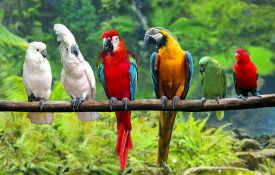-
Why Is Dining Alone So Difficult?
… The assumption that people need to be coupled or grouped goes beyond restaurants, said Bella DePaulo, a social psychologist in Summerland, Calif., and the author of the 2023 book “Single at Heart: The Power, Freedom Visit Page
-

When It Comes to Prejudice, a Growth Mindset Can Cut Both Ways
Teaching: Lesson plans about the changeability or controllability of traits that other people possess and how they can play a role in whether we develop prejudice toward them or not. Visit Page
-
The Surprising Benefits of Gossip
Scientists have studied gossip for decades. That’s not surprising given the activity’s near universality in any social group, big or small. It’s estimated that more than 90 percent of people in workplaces in the U.S. Visit Page
-

Our Cognitive Bias Toward Novel, Negative Information May Make New Social Groups Seem Less Likeable
People’s biases against members of other groups may have a cognitive basis owing to how we prioritize negative information when encountering new social groups, new research suggests. Visit Page
-

New Research in Psychological Science
A sample of research on learning-induced plasticity, whether risky drinking is also characterized by stimulus generalization, comprehensive social trait judgments, self-esteem, and much more. Visit Page
-

Scientists Discuss How to Study the Psychology of Collectives, Not Just Individuals
In a set of articles appearing in Perspectives on Psychological Science, an international array of scientists discusses how the study of neighborhoods, work units, activist groups, and other collectives can help us better understand and respond to societal changes. Visit Page

